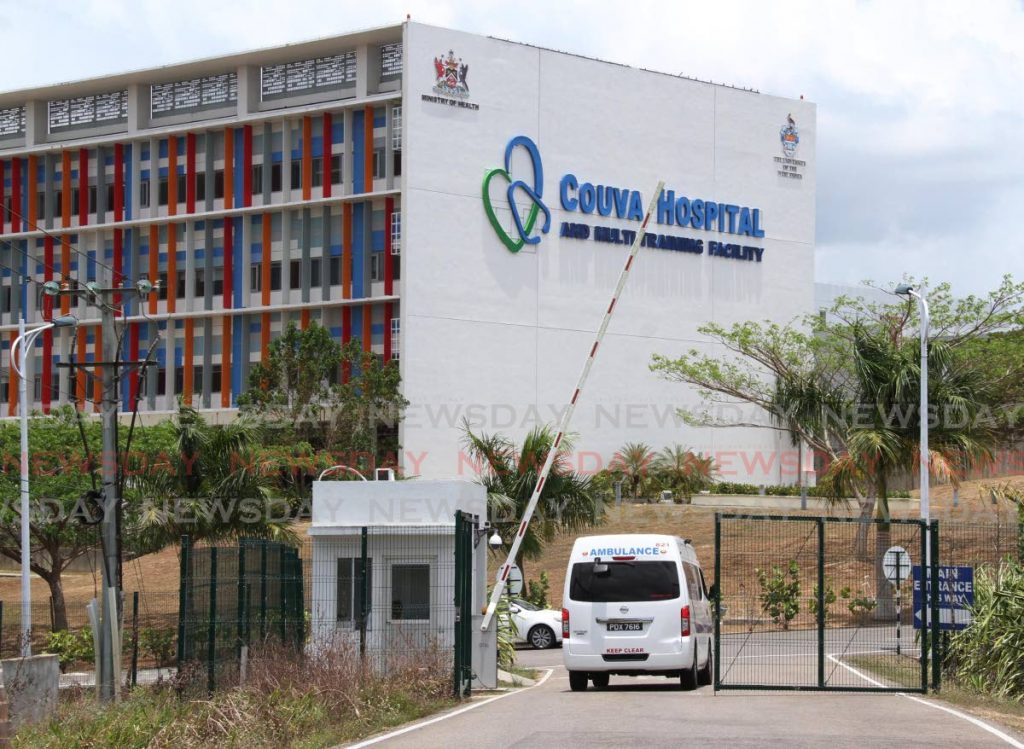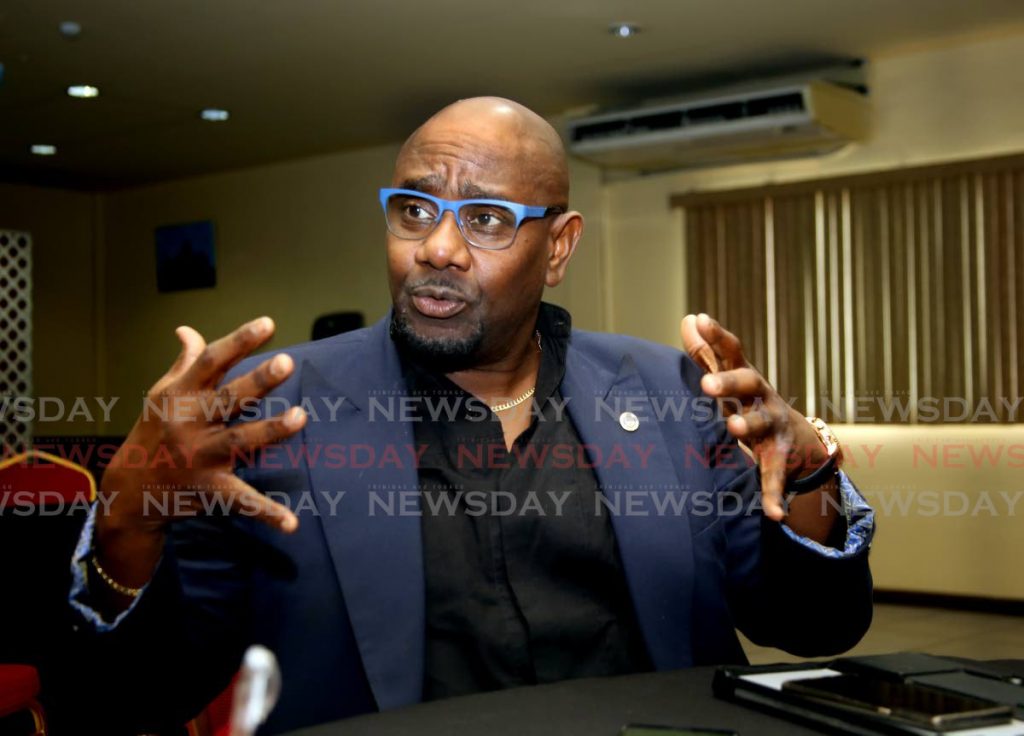NCRHA CEO: First covid19 death hard on health workers

The death of Hansel Leon, 77, resonated through the North Central Regional Health Authority (NCRHA) and the country as a whole.
He was the first covid19 fatality in TT and, according to Davlin Thomas, CEO of the NCRHA, it was difficult for everyone involved.
Leon died on March 25, 2020 at the Couva Hospital, 12 days after he was taken to the San Fernando General Hospital with flu-like symptoms.
Thomas told Sunday Newsday the staff at Couva all gathered and prayed, and a team of psychologists were call in to build the staff’s resilience so they could have continued to treat the needs of the other patients at the time.
“We take pride in what we do but remember this was an unknown monster. He was our first really sick covid patient and nobody wanted him to die. It was traumatic. Doctors and nurses, technical people, clerks were crying. It was difficult. We had to give them a day off.”
After many such experiences, and the thousands of deaths still occurring daily all over the world, he finds it “interesting” that many Trinidadians and Tobagonians are so “casual” about the health regulations put in place for their own safety and about the pandemic in general.
He believed these people are taking for granted the vast amount of work the Ministry of Health and the RHAs have done to set up and operate the parallel health care system.
Thomas recalled that, around March 8, Health Minister Terrence Deyalsingh called and told him to get Couva Hospital ready because it would be the site for covid19 patients and that the NCRHA would have the responsibility for initial engaging with the virus.
When he got the call from Deyalsingh around 11 pm, he called the chairman and issued a yellow alert, which is stand-by. An hour later the NCRHA’s incident response team (IRT) was activated.
The team had about 60 members including doctors, nurses, psychiatrists, as well as biomedical, technology, management, engineering, and other personnel, who had trained with Falck, a Nordic-based emergency services company, a few months prior.
Previous to the call, the NCRHA’s infectious diseases personnel had been keeping up-to-date on information about the virus and had been informing management and the team of what to expect.
During the Falck training, IRT produced five response plans to different situations.

“One was for an outbreak highly infectious diseases and, with no covid on the landscape, we had just finished doing a simulation. There is a God!”
The team was alerted and they worked for 48 hours to set up the Couva and Caura hospitals.
He said Caura was ideal because previously, a four-room isolation unit had been built. There was also a donning and doffing suite which was installed when the team did three months of donning and doffing training to correctly put on and remove personal protective equipment (PPE). Training was necessary because, if not done properly the person could be infected and go on to infect others.
“We got the call just after the donning and doffing suite for infection control was put up. So, we went straight from training into incident response…
“When it was unfolding, there was a kind of feeling that we were made for this. This is what we’ve been training for.”
“There was fear because of the unknown quality of covid. We knew life and death were in the balance but, at that junction we knew we were going to stand in the door between the virus and our families. Who else was there to do it? We trained for this and we were ready for it.”
He said there were areas at Couva that were not in use and were scheduled to be refurbished in 2022. There also had to be hot, warm, and cold areas so plumbers, carpenters, cleaners, and various other tradesmen came together to prepare those areas as soon as possible.
There were finite resources, but everyone knew their jobs and worked hard with what they had. Even after the first few cases, some people slept on site to save time and continue working.
There was also much logistics to arrange such as feeding the staff, and arranging transport for the workers to name a few.
Thankfully, the NCRHA received a lot of support from the business and religious communities. For example, the Supermarket Association volunteered to provide meals.
The RHA also approached several churches, mosques, and temples to ask if they would allow their halls to be used for medical purposes if the situation took a turn for the worse. And they were willing.
Although they eventually hired staff, initially people from the Eric Williams Medical Sciences Complex were identified to populate the parallel health care system. Thomas and his team et with individuals including clerks, radiographers, doctors, nurses, pharmacists, and others, and asked for volunteers. Everyone said yes.
“One of the hidden things about covid19 is the level of patriotism that occurred in those first few months. When we had that unknown to deal with, we had people who volunteered, who said, ‘We’re coming across to your RHA.’ It was phenomenal! Some people just showed up and then we had to call their CEOs and say, ‘You know, we have a nurse from by you here.’ There were nurses who were prepared to leave their jobs to come help. Then there were NCRHA staff who said, ‘Yeah, we coming across. Let’s go!’”
In the first month after the minister’s call, about 60 people were hired and trained in critical care.
Initially, they were using Tyvek suits for PPE which gave the highest level of protection and covered the body from head to ankles. But, as more was learned about the virus they started to wear the more appropriate gear. Throughout the pandemic, the NCRHA insisted on proper PPE so people had the confidence to do their work but it also had to manage people’s understanding of the changes.
He said the NCRHA is still building contingencies because the fact is that the pandemic is not over and variants of the virus are popping up. At the same time, it is getting ready to support the ministry through the vaccination phase.
“I think the country grew from this. There is an awareness of how good we are doing as a country. And it isn’t just us. It’s the people who continue to wear their masks, do social distancing and so on. Other countries are having problems with that and people, sometimes innocent people who are doing what they are supposed to, are paying the price. History is going to be good to TT.”


Comments
"NCRHA CEO: First covid19 death hard on health workers"